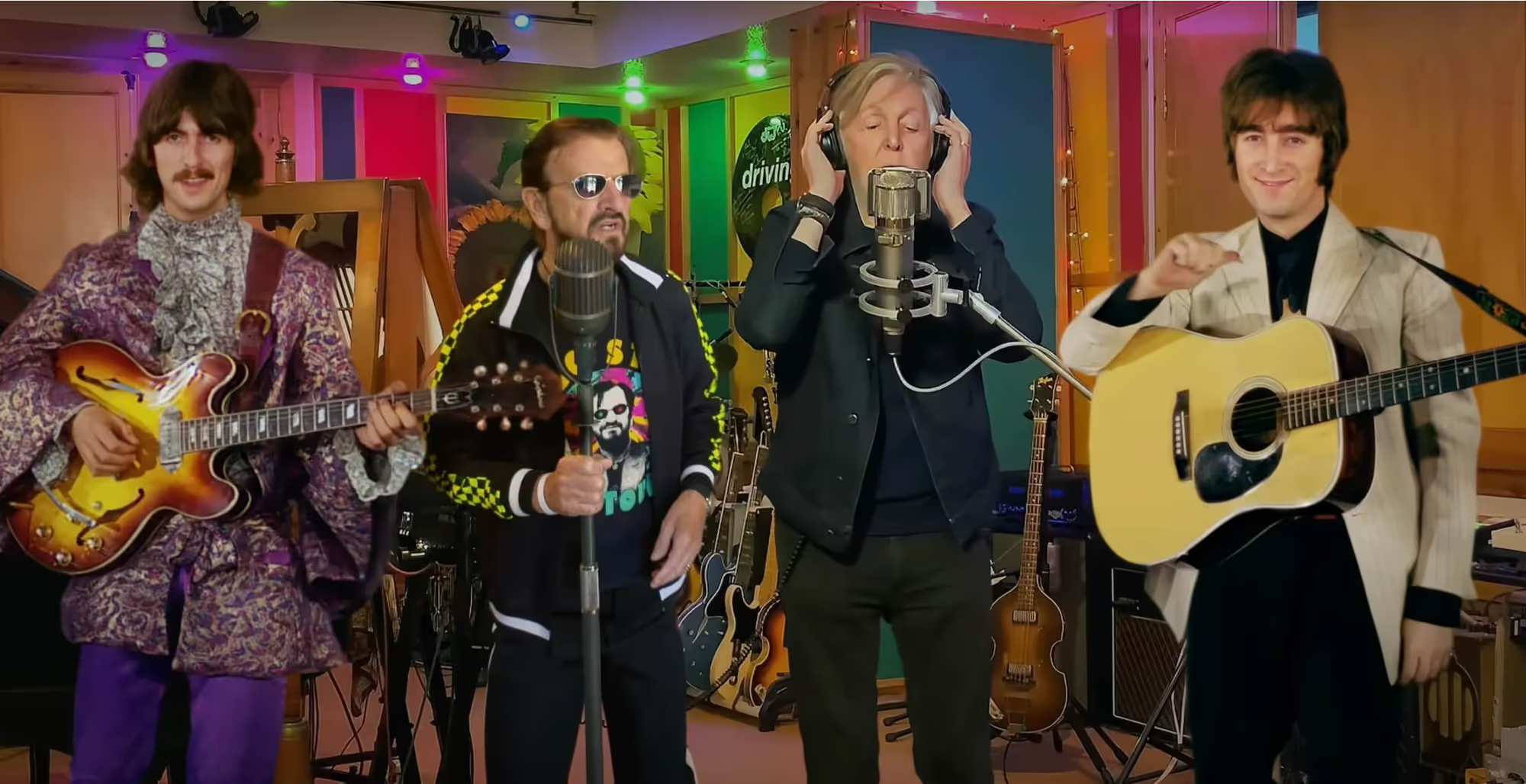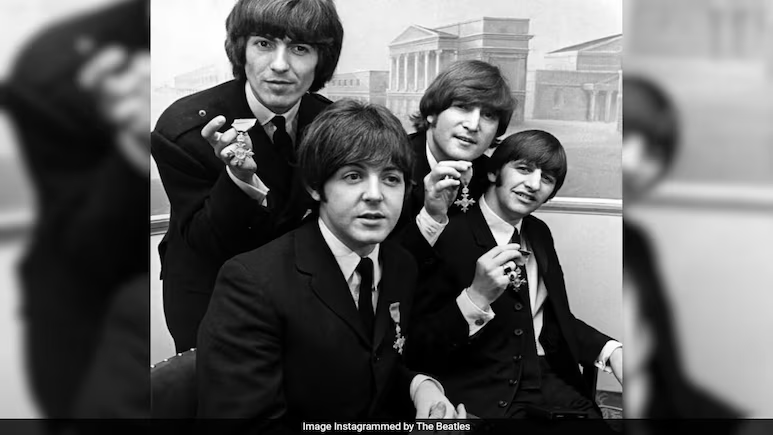The Beatles Get a Grammy Nod
Nearly 50 years after the bands split, Artificial Intelligence puts them outfront again
The Beatles might finally be able to win a “Record of the Year” Grammy. The Fab Four’s latest “new” song, ‘Now and Then,’ was nominated this past Friday for the “Record of the Year” Grammy and will be competing against songs by Beyoncé, Billie Eilish, Chappell Roan, Charli XCX, Kendrick Lamar, Sabrina Carpenter, and Taylor Swift featuring Post Malone.
The recording was also nominated for “Best Rock Performance”. The Beatles have never won Record of the Year, despite being nominated for “I Want to Hold Your Hand” in 1965, “Hey Jude” in 1969 and “Let It Be” in 1971. With these nods, the band now has a career total of 25 competitive Grammy nominations. The Grammys will be held on February 2, 2025.
The song was originally written and recorded by John Lennon back in 1977 via his infamous home demos. The song was left unfinished and never completed by Lennon due to his untimely death in 1980. The track was being considered for The Beatles’ retrospective project, The Beatles Anthology in the late 1990s. However, due to production issues, the song was kept on the shelf for decades until 2023.


Their posthumous final song, called “Now and Then,” was restored last year with the help of AI. Though ‘Now and Then’ was completed using machine learning, it still falls within the bounds of Grammy rules concerning AI. The guidelines state that “only human creators are eligible to be submitted for consideration for, nominated for, or win a GRAMMY Award,” but work that contains “elements” of AI material is “eligible in applicable categories.” Kind of a blurred line if you will.
So, in 2021, filmmaker Peter Jackson, and his sound team were able to separate the instrumentals and vocals using the latest technology, allowing Paul McCartney and Ringo Starr to finally complete the song. Paul played the guitar parts of the late George Harrison using “Harrison’s style”. AI was crucial in cleaning up the audio, using a method called “stem separation” to isolate Lennon’s voice and remove background noise. This technique was also applied to remaster earlier Beatles albums. The Grammys have seen debates over AI’s role in music, highlighted last year when the AI-driven song “Heart on My Sleeve” stirred controversy over deepfakes and intellectual property. Unlike that instance, The Beatles’ approach here emphasizes restoration over replication—a respectful nod to the past, rather than a provocative leap into the future.
“Now and Then” now marks evolved rules and standards within the music industry, particularly concerning AI’s role in artistic construct. The Recording Academy has now adapted its guidelines to acknowledge works incorporating AI elements, providing that they are accompanied by “substantial” human creativity. This paradigm shift mirrors older and broader trends where AI is integrated into traditional art forms. In this rewritten context, “Now and Then” not only showcases the enduring legacy of The Beatles but also redefines what constitutes a ‘new’ release in the digital age.

The decision to allow for this type of recording to be granted a nomination is quite polarizing with the public and within the music industry. Supporters argue that the song memorializes The Beatles’ timeless influence and showcases the potential of AI to revitalize dormant projects that we may otherwise be unable to hear. There is an appreciation for how technology has been used to honor Lennon’s original work, while allowing McCartney and Starr to contribute anew. Critics, however, are wary of AI’s growing presence in artistic spaces, questioning whether such creations diminish the authenticity of music.
This is most certainly an important time in music as applied sciences have become more advanced. While technology has always been involved in the creation of sound, recording, mixing, and production, Artificial Intelligence could be the most controversial application we have seen since Auto-Tune and hologram performances. I am still on the fence myself. I love that we can save and reproduce lost music that was incomplete. I do worry about the slippery slope that it creates and possible inception of total artificial formation.


I’m not a huge fan of this Nomination – a bit due to the technology used, but mostly because it’s not a great song.
I love the Beatles and it annoys me that they never one a well deserved record of the year. But if “Hey Jude” and “Let it Be” didn’t win, nor should this one. Fun trivia: both songs were beat out by good (but not better) Simon and Garfunkel tunes